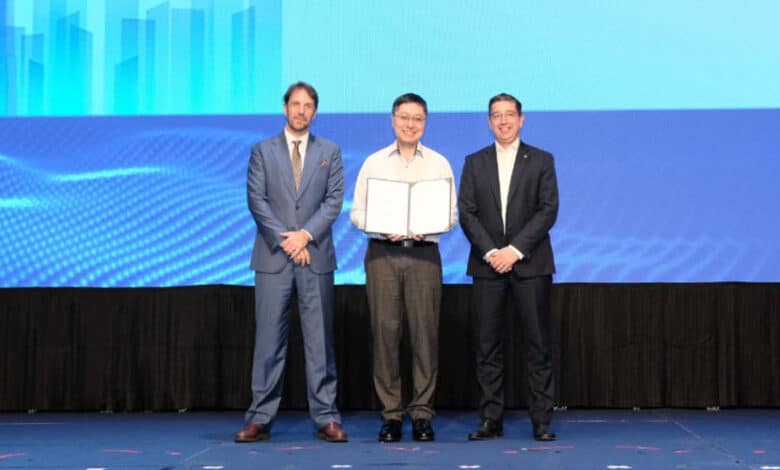Eastern Pacific Shipping strengthens green collaboration with MPA with six Singapore-registered Ammonia Dual-fuel Newbuilds

Six of Eastern Pacific Shipping’s Ammonia dual-fuel newbuilds will be registered under the Singapore Registry of Ships (SRS) upon delivery, according to Memorandums of Understanding (MoUs) signed with the Maritime and Port Authority of Singapore (MPA), classification societies ABS, and Lloyd’s Register.
The commitment of these newbuilds comes six months after EPS announced a partnership on the development of an ammonia burning engine that will be installed in the new fleet of EPS-managed vessels with MAN Energy Solutions (MAN ES), HD Hyundai Heavy Industries Co., Ltd. (HHI), and yards from the China State Shipbuilding Corporation (CSSC), with support from classification societies ABS and Lloyd’s Register.
The MoUs underscore EPS’s unwavering support for MPA’s efforts to use green ideas to decarbonize and digitize the shipping sector. In accordance with the MoUs, the following collaboration will take place: joint capability and capacity-building on ammonia bunkering; management and safety training for seafarers; sharing of expertise and knowledge to investigate ammonia-related standards and solutions for power generation and bunkering; and consideration of zero and near-zero fuel pilot trials.
The collaboration between EPS and MPA is an example of a group “act-now” strategy for environmental preservation and decarbonisation. Additionally, it highlights a common goal to advance decarbonisation in the shipping sector through innovation, teamwork, and sustainable practices, supporting sector expansion and maintaining the highest levels of environmental stewardship, safety, and training. Additionally, EPS and MPA will collaborate closely to investigate and support crew training at the new Maritime Energy Training Facility, which is expected to be built gradually by 2026, on zero and near-zero emission fuels and related technologies.
The signing of these Memorandums of Understanding formalizes our cooperation with MPA, and we are thrilled about it’, said EPS CEO Cyril Ducau. “We must acknowledge that crew safety is of utmost importance as optimism for ammonia transportation develops in light of the ongoing expansion of ammonia production capacities worldwide. This partnership strengthens our resolve to collaborate with important industry players to tackle obstacles and lead the safe transportation of fuels with zero or almost zero emissions, such as ammonia, and its acceptance as a maritime fuel. We’re excited to expand our collaboration with MPA and the larger maritime community in order to strengthen the environmental and safety aspects of our work and safely accelerate the decarbonization of the global shipping industry. This will involve building on necessary training and capacity-building.
“We welcome EPS’ newbuilds to the family of Singapore-registered vessels,” stated Teo Eng Dih, Chief Executive of MPA. Strong confidence in the usage of ammonia as a marine fuel is provided by the delivery of EPS’s ammonia dual-fuel newbuilds starting in 2026. It will facilitate the development of the necessary infrastructure and value chain, as well as the workforce’s training to prepare them to handle ammonia as fuel safely. We are eager to collaborate with EPS and other like-minded parties on the practical measures that will accelerate the decarbonization of global shipping.
“EPS has put strategy into action when it comes to answering the maritime industry’s decarbonization challenges,” stated Nick Brown, CEO of Lloyd’s Register. In addition to choosing and testing numerous emission-reduction strategies to increase the efficiency of its legacy fleet, EPS is also investing in alternative fuels for its new tonnage. This Memorandum of Understanding will open the door for resolving the operational and safety issues that this great technology brings, while also representing a significant advancement in ammonia propulsion. We are optimistic that this agreement will result in important shared learnings that will benefit the larger marine value chain, given LR’s longstanding relationships with EPS and MPA.”
